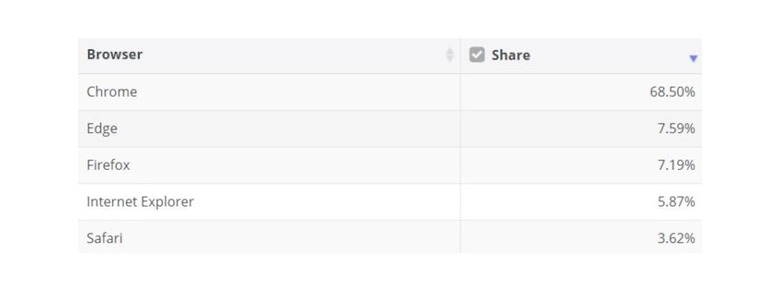Microsoft Edge is now more popular than Firefox thanks to Google Chrome
The browser wars may not be truly over yet but it has taken on a slightly different turn. Internet Explorer has been laughed out of the arena, practically leaving Google Chrome and Mozilla Firefox at the top with a large chasm between them. Now Firefox has suddenly found itself dethroned from its already precarious position by the upstart Microsoft Edge. Ironically, that is mostly thanks to Google Chrome, to be more specific its open source Chromium base.
Microsoft gave it its best shot with its own web browser engine, even taking shots at Chrome's notorious power-efficiency issue. It would partly eat its own words when it threw in the towel and based Edge on the same Chromium code based that Google builds Chrome on. Now it has taken a leap past Firefox as the world's second most popular desktop web browser.
That's mostly thanks to the solid foundations it stands on, delivering the same performance and experience that Chrome users are already familiar with. It is even compatible with many Chrome extensions, even though Google, for a time, tried to scare Edge users from its Chrome Web Store. Whatever Chromium can do, Edge can as well and more.
That's not to say Edge is simply a Microsoft skin on top of Chrome. For its part, Microsoft did make fundamental improvements, especially when it comes to power management, that Google is also looking into folding back into Chromium. There are also Microsoft-specific integrations, of course, designed to keep Windows and even Mac users from having to jump away from Microsoft software.

Edge's lead isn't exactly that great, 7.59% over Firefox's 7.19%. Even all the other browsers' combined shares can't stand up to Chrome's 68.50%. And when you consider that Edge, Opera, and a whole host of other browsers are based on Chromium in the first place, it's pretty much Google's world anyway.
